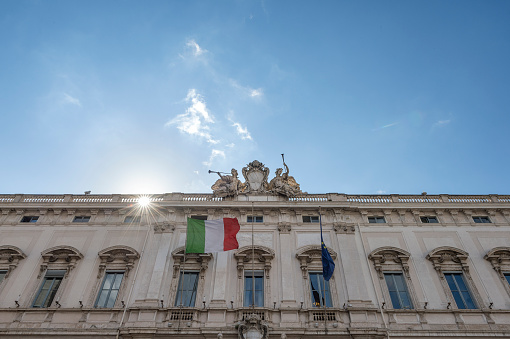Introduction
On August 11th, 2021, the Italian tax administration published a new draft circular in public consultation mode (with the possibility to submit comments and proposed amendments until September 30th, 2021) concerning the Italian tax treatment applicable to trusts.
In particular, the administrative document aims to provide clarifications to practitioners on four main topics: tax regime of attributions of trust gains to beneficiaries for income tax purposes, application of inheritance and gift tax during the lifetime of a trust, tax monitoring obligations and application of Italian wealth taxes.
How do the attributions of trust gains to beneficiaries have to be considered for Italian income tax purposes?
Law decree no. 124 of 2019 amended the national legislation concerning the attributions to Italian tax resident individuals operated by opaque trusts resident in low-tax jurisdictions [1] in order to avoid the foreign tax residence leading to a considerable reduction of the tax burden on the beneficiaries.
More specifically, the actual legal framework provides, on the one hand, that the income attributed to an Italian tax resident by a trust which is resident in a low-tax jurisdiction has to be included in the capital income category.
On the other hand, a relative presumption has been introduced whereby, if it is not possible – at the time of the attribution – to distinguish between income and estate, the total amount transferred will be considered as income. In order to overcome this presumption, the trustee must distinguish, by means of appropriate accounting, the portion referring to the initial segregation transfer, net of any asset attributions made in favour of the beneficiaries, from the portion referring to the income realized from year to year, also net of any attributions made in favour of the beneficiaries.
When is inheritance and gift tax due?
The main topic covered by the circular is the tax administration’s reversal concerning the moment of application of inheritance and gift tax.
Over the last two years, from 2019 until today, the Italian Supreme Court has ruled unequivocally on this topic on several occasions, affirming the tax neutrality of the segregation of assets in trust. On the contrary, the Italian tax authorities have continued to apply proportional taxation “on entry”, rather than “on exit”. The situation has therefore obviously generated great uncertainty regarding application, and widespread litigation.
In the new draft circuar the tax authority considers the cited settled case law as not “susceptible to further revision”, thus choosing to fully comply with the taxation “on exit” approach. More specifically, the tax administration recognizes that the transfer of assets by the settlor to a trust does not give rise to carry-over effects, having only a provisional and instrumental scope; therefore, only registration tax at a fixed rate must be applied to this act of transfer (as well as to the deed of settlement) [2].
Italian inheritance and gift tax and proportional mortgage and cadastral taxes will be applied only when the deeds assigning the assets in trust to the final beneficiaries take place, given that it is only at this moment that an actual transfer of wealth occurs through a stable and not merely instrumental assignment of assets.
It follows that the taxable base, rate and any applicable threshold [3] must be determined with reference to the date of the deed whereby the final transfer is made in favour of the beneficiary.
In relation to this final transfer, the Circular distinguishes between allocations “of assets” and allocations “of income”. In fact, Italian inheritance and gift tax is only applicable to allocations made to the Italian resident beneficiary which are qualified as being allocations “of assets”, as for the assets originally segregated in trust.
Lastly, with reference to the topic of the obligations to register the deeds of settlement and/or transfer of assets of a foreign trust, the Circular shows that such deeds may be subject to the obligation of registration in Italy. According to the tax administration, this happens when the deed concerns real estate and registered movable assets located in Italy, or when the beneficiary is resident in Italy.
Who has to comply with the tax monitoring obligations?
Italian tax resident trusts are required to comply with tax monitoring obligation for investments and assets of a financial nature held abroad.
Transparent resident trusts must comply with the tax monitoring obligations by indicating the value of the foreign assets and the percentage of the assets that cannot be attributed to resident “beneficial owners”; if the beneficial owners of the entire assets are residents, the trust is exempt from completing the RW framework in its income tax return.
Resident beneficiaries of trusts qualify as beneficial owners if they are “identified or easily identifiable“, i.e. it is possible to identify them – even indirectly – from the trust deed or from other documents.
In the case of a foreign opaque trust, irrespective of the foreign country in which it is set up, its beneficiaries can in any event be classified as “beneficial owners” within the meaning of anti-money laundering legislation.
Therefore, if its beneficiaries are identified or easily identifiable in the foreign opaque trust deed or other documents, they are subject to the obligation to fill in the RW framework, if they are Italian residents.
When are Italian Wealth Taxes are due?
Italian tax legislation provides for two wealth taxes, i.e. the tax on the value of real estate located abroad (IVIE) and the tax on the value of financial assets held abroad (IVAFE).
Italian tax resident trusts will therefore have to pay taxes on real estate and financial assets held abroad as from January 1st, 2020.
The objective condition for the application of IVIE is the possession of real estate located abroad by way of ownership or other real right, for whatever use it is intended. The IVIE is due to the extent of 0.76% in proportion to the share of ownership or other real right and the number of months such right has existed, with an exemption of 200 euro. The value to be declared is the cost resulting from the deed of purchase or contracts or, failing that, according to the market value detected in the place where the real estate is located.
However, for real estate located in the countries of the European Union or the EEA, which guarantee an adequate exchange of information, the value to be used is primarily the cadastral value, as determined and revalued in the country in which the real estate is located.
As from 2020, IVAFE also applies to Italian tax resident trusts that hold financial assets abroad by way of ownership or other real right, regardless of the manner of their acquisition, in proportion to the share of ownership and the period of holding. This tax is applicable on the value of financial products, bank accounts and savings held abroad, and is due at the rate of 2 per thousand of the value of the above-mentioned assets.
The taxable base for IVAFE is the market value of the financial assets, as recorded at the end of each calendar year in the place where they are held, including by using the documentation provided by the foreign intermediary or the foreign insurance company. In the absence of said value, reference must be made to the nominal value or the redemption value.
What is missing?
Despite the appreciable effort of the tax administration to shed light on these matters, some topics have been missed. Firstly, the circular does not define or provide examples on what has to be considered as a final attribution to a beneficiary. Secondly, the fate of the trust deeds already signed to which proportional taxation “on entry” has been applied, has not been clarified.
The only hope is that these clarifications will be included in the final version of the circular, which has not yet been released.
Author: Insignum International Office, Milan
[1] In order to determine which countries qualify as low-tax jurisdictions, a comparison is made between the nominal level of taxation of the incomes produced by the trust in its country of residence and the Italian individual income tax rate in force in the tax year during which the income is distributed. [2] In addition, the administrative document clarifies that the possible change of the trustee during the trust lifetime is not a taxable event and, as a consequence, the deed of substitution will be subject to registration, mortgage and cadastral taxes at fixed rates. [3] The relationship between the settlor and the final beneficiary is the relationship to be taken into consideration for this purpose.





